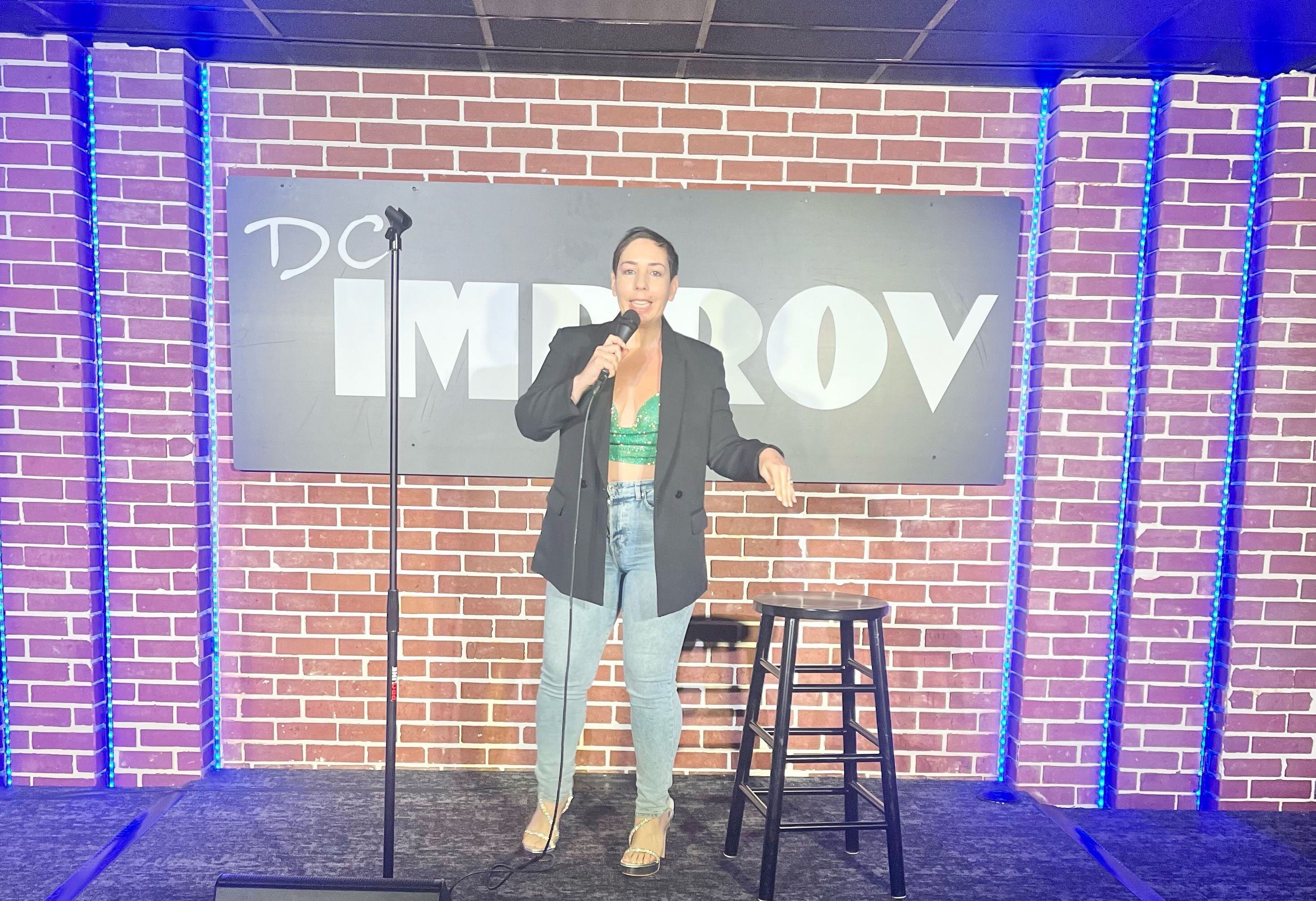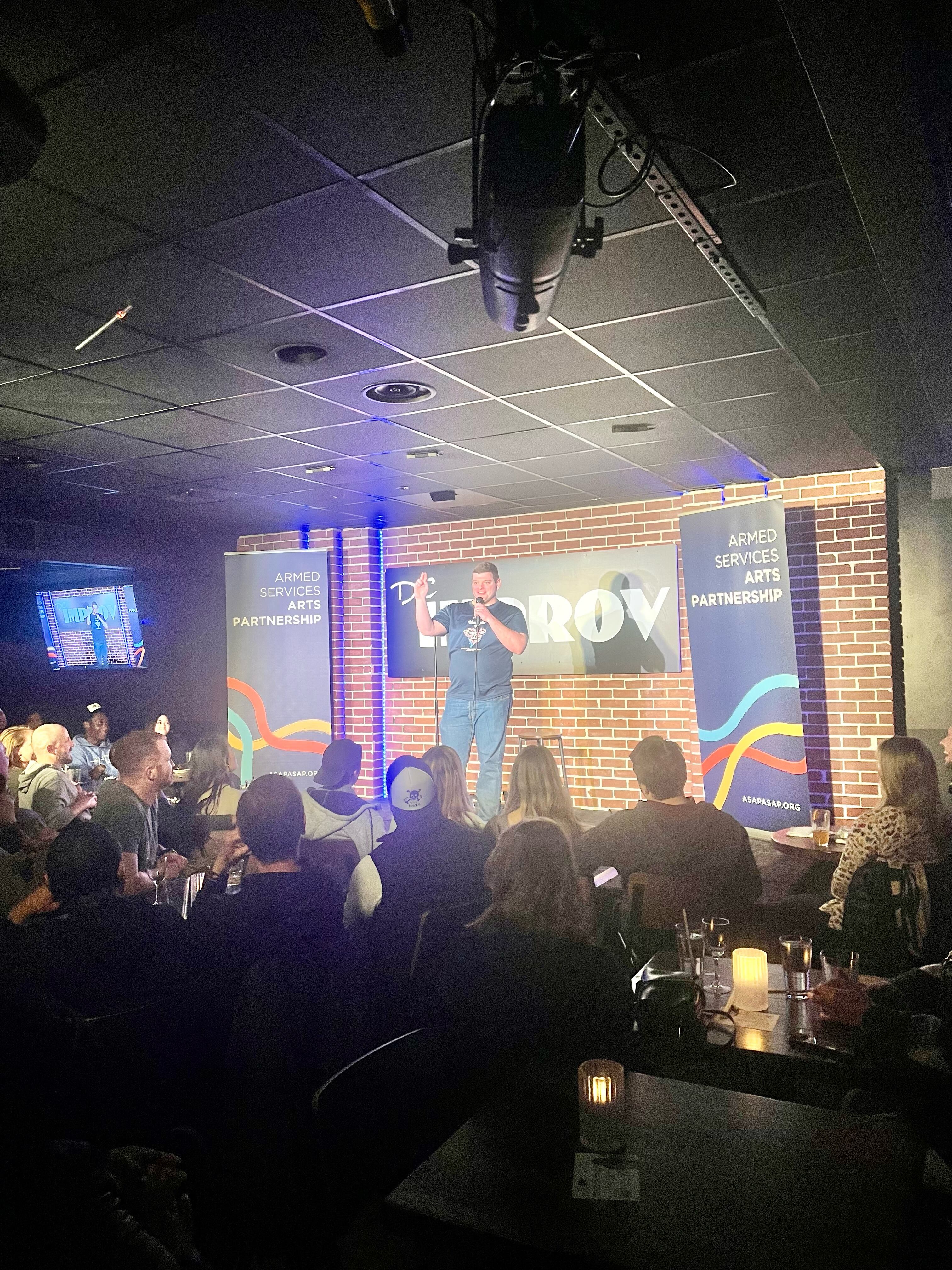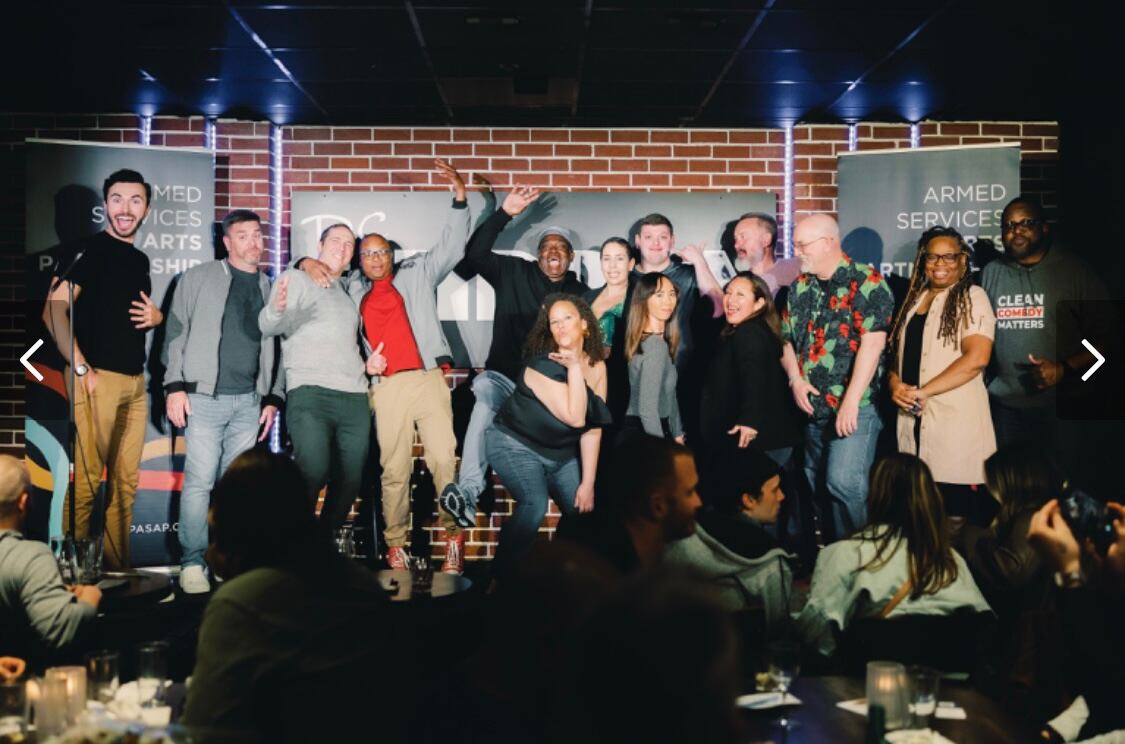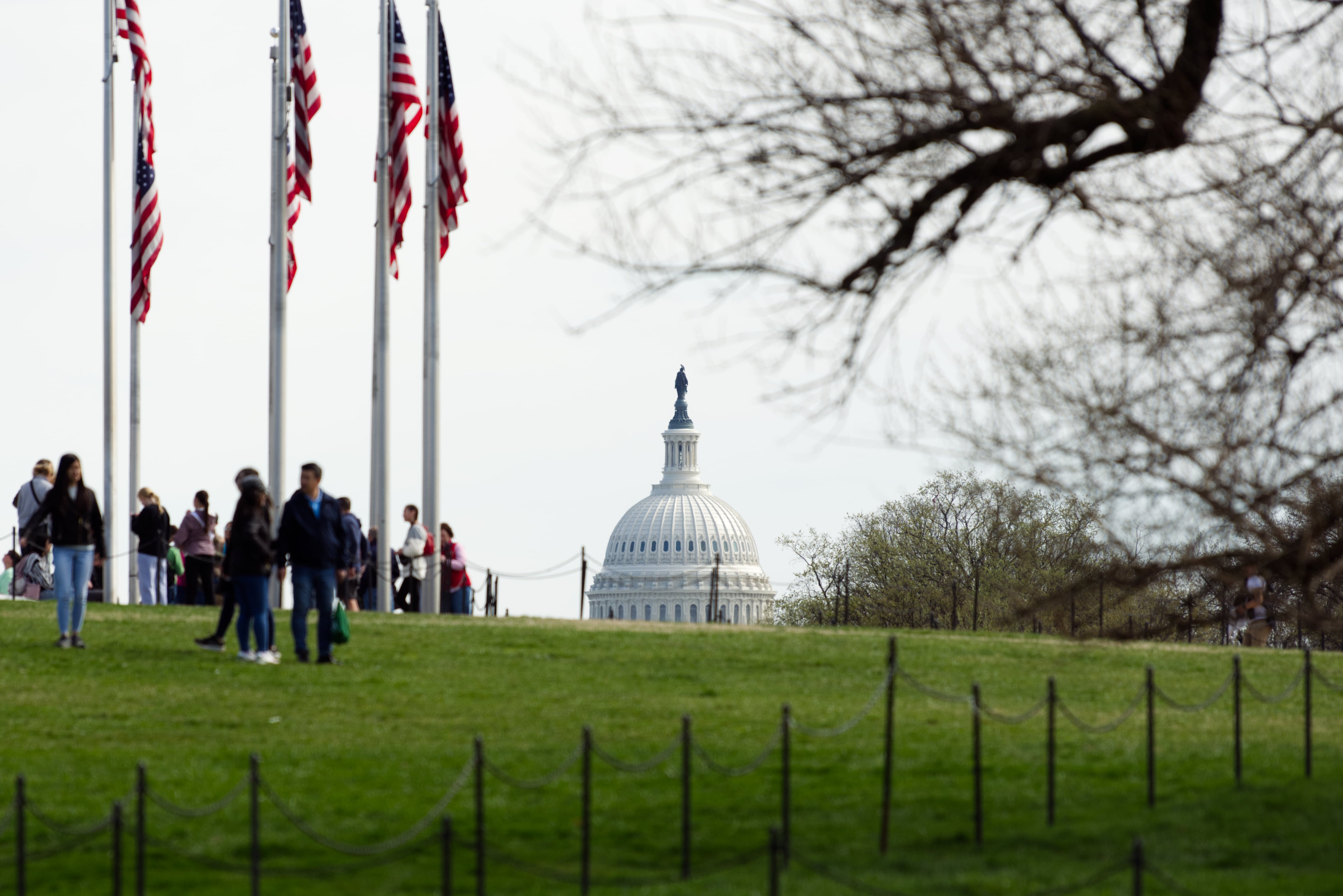As I ascended the few short steps to the showroom stage at the DC Improv, it seemed as if time briefly stood still. In that dark, non-descript basement venue in Northwest D.C., I now occupied the same space that hundreds of household names and homegrown talent alike had held for decades. My lime-green rhinestone mesh halter top glistened under the blinding stage lights. This was my moment to shine.
For five glorious minutes, I laid my soul bare to a crowd of faceless silhouettes. I told jokes about my divorce. I poked fun at my bisexuality. I detailed the hilarious woes of being re-married to an active duty service member. With the landing of each punchline, a sense of relief washed over me. I felt seen. I felt heard. At last, I felt understood.
What does standup comedy have to do with military life? It can help veterans connect to other veterans, once they’ve left the active duty side of the military. And it can serve as a way to bridge the cultural gap between the military and civilian populations, also called the military-civil divide, in American society.

Today, about 1.3 million active duty personnel serve in the armed forces, or less than one-half of 1% of the U.S. population. The lack of integration and interaction between the military and civilian populations can perpetuate harmful and inaccurate stereotypes about service members, veterans and their families and are especially prevalent in media depictions.
Not all service members are battle-hardened warriors. Not all veterans have post traumatic stress disorder, or PTSD. And military spouses are their own special breed, juggling our individual careers while supporting our partners’ personal and professional needs, which is even more complicated when raising a family and changing duty stations every three years.
Despite its myriad challenges, being a part of the military-connected community is an honor. I am immensely proud of my spouse’s service and of my contributions to the mission as a federal employee.
Non-profit organizations like Armed Services Arts Partnership, or ASAP — because the military loves its acronyms — offer free art and comedy classes to service members, veterans, military spouses, family members, and caregivers.
As the Department of Veterans Affairs has expanded its creative arts therapy programming and begun to shift from the once knee-jerk solution of pharmaceutical interventions for managing conditions like PTSD, traumatic brain injuries, anxiety and depression, more veterans are discovering the tangible benefits of creative expression.
Whether by participating in comedy, storytelling, acting, or visual arts, ASAP program graduates gain confidence, resilience and are more empowered to confront their trauma, particularly in a safe and supportive environment like the one ASAP provides.

My spouse and I took a six-week ASAP comedy bootcamp course culminating in a graduation showcase at the DC Improv. Along with seven of our veteran, active-duty, and military family classmates, we performed the tight set we developed with guidance from our veteran-comic instructors. Our class met each week for three hours, workshopping our material and adopting tricks of the trade from bonafide comedians, but most of all, we learned how to be vulnerable with ourselves and each other. ASAP classes are not only about gaining artistic skills — they are profoundly cathartic.
Admittedly, my spouse and I were skeptical going into this experience. For a community that prides itself on privacy and maintains a stiff upper lip, sometimes to its detriment, I wondered if everyone could let their guard down so quickly. By the end of the first class, we met with our classmates over beers and dove right in. Dead parents. Failed marriages. Physical imperfections. We mined our collective trauma for comedic gold. The more we normalized our pain, the easier it became to laugh at the absurdity of life — and at ourselves.
We learned that comedy is truly a team sport. Our instructors built us up after we bombed at an open mic. They gave us constructive criticism to improve our odds of getting the oh-so-coveted belly laugh. They generously imparted their wisdom and genuinely wanted us to succeed on our big night. They had once gone through this exact process and understood the transformative power of that stage.
In partnership with other veterans’ service organizations like The Mission Continues and The Bob Woodruff Foundation, ASAP packed the DC Improv showroom with members of the military-connected community and civilians eager to bridge that elusive military-civil divide.
By speaking our truth, each performer took a sledgehammer to that dividing wall. With every strike, we saw the crowd, and ourselves, a little more clearly.
Melissa A. Sullivan is a military spouse and a federal employee. Her writing has been featured in The Washington Post, The Baltimore Sun, and The South Florida Sun-Sentinel. She and her spouse live in Washington, D.C.
Have an opinion?
This article is an Op-Ed and as such, the opinions expressed are those of the author. If you would like to respond, or have an editorial of your own you would like to submit, please email us. Want more perspectives like this sent straight to you? Subscribe to get our Commentary & Opinion newsletter once a week.





